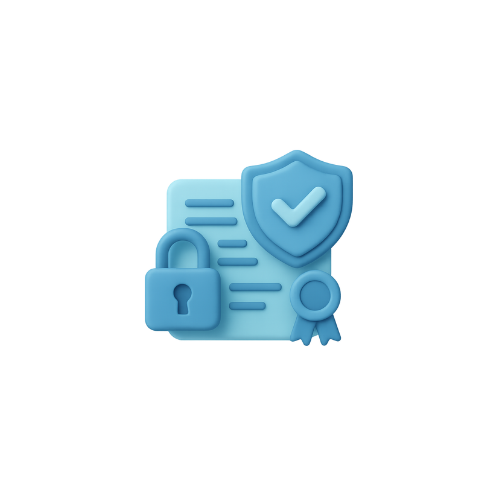 QED
QED
 English
English

 All Blogs
All Blogs

Brand Authentication Solutions: Safeguarding Trust in the Digital Era
In today’s fast-paced, digitally connected world, protecting a brand has become more challenging than ever before. Counterfeit products, digital fraud, and identity theft are increasing at alarming rates, threatening not just the reputation of businesses but also consumer trust. According to the Global Brand Counterfeiting Report 2024 , the value of counterfeit goods sold globally reached over $1.7 trillion, with luxury, pharmaceuticals, and consumer goods among the hardest hit industries. In this landscape, brand authentication solutions have emerged as an essential shield to preserve authenticity, build trust, and secure growth.
A brand is more than just a logo—it represents values, trust, and customer loyalty. When counterfeit or fake products enter the market, they not only erode sales but also damage long-term credibility. For instance, a consumer who unknowingly purchases a counterfeit skincare product may suffer side effects. The experience doesn’t just reflect poorly on the counterfeit seller—it damages the original brand’s reputation.
This is where brand authentication solutions step in. These solutions use cutting-edge technologies such as blockchain, QR codes, NFC chips, and AI-based verification to ensure products can be tracked, verified, and trusted from the point of origin to the consumer’s hands.
One of the industries most at risk from counterfeiting is pharmaceuticals. The World Health Organization (WHO) reports that one in ten medical products in developing countries is either substandard or falsified. This not only endangers lives but also results in financial losses running into billions of dollars.
By integrating brand authentication solutions, pharmaceutical companies can attach secure, scannable tags or codes on product packaging. When customers or distributors scan the code, they receive instant verification that the medicine is authentic and has been tracked along a secure supply chain. This creates a transparent ecosystem that protects both patients and brands from harmful consequences.
Among the innovators in this space, Qed Vault has been making remarkable strides. With its advanced technology platform, Qed Vault empowers businesses to safeguard their brand identity while building deeper connections with consumers. Their authentication solutions combine blockchain technology with real-time product verification, ensuring that every item is uniquely protected against counterfeiting.
For example, a fashion retailer partnering with Qed Vault can assign secure digital identities to each item of clothing. Consumers can verify authenticity with a quick smartphone scan, giving them confidence in their purchase while enabling the brand to gather valuable consumer insights. This two-way engagement not only fights counterfeiting but also strengthens brand-consumer relationships.
To understand the real impact of these solutions, let’s break down their core mechanisms:
Trust is the cornerstone of brand loyalty. A Nielsen study found that 59% of consumers prefer to buy new products from brands they already trust. By deploying brand authentication solutions, businesses are not just fighting counterfeiting—they are actively reinforcing consumer trust.
Imagine buying a luxury handbag and being able to verify instantly that it is genuine. That peace of mind elevates the customer experience, making them more likely to return to the same brand. Moreover, when consumers share such secure and satisfying experiences with peers, it enhances word-of-mouth marketing, which is invaluable in today’s competitive market.
The adoption of brand authentication solutions is accelerating across multiple industries. According to Allied Market Research, the global anti-counterfeit packaging market is projected to reach $320 billion by 2027, growing at a CAGR of 10.5%. This surge is fueled by the demand for transparency and authenticity in sectors like food and beverages, electronics, luxury goods, and healthcare.
Governments are also pushing for greater product transparency. For instance, regulations in regions like the European Union now require serialization and traceability for pharmaceuticals. This makes authentication not just an option but a compliance necessity.
As technology continues to evolve, brand authentication solutions will become even more sophisticated. Artificial intelligence will enhance fraud detection, blockchain will provide unshakable transparency, and IoT devices will enable real-time supply chain monitoring.
Qed Vault is already exploring these future-forward approaches, ensuring its clients are prepared to tackle tomorrow’s challenges. By merging security with consumer engagement, they are redefining what brand protection looks like in the digital era.
In a world where counterfeiting and fraud threaten even the most established businesses, brand authentication solutions are no longer optional—they are essential. They protect businesses from revenue loss, shield consumers from harm, and build the trust needed to thrive in competitive markets.
Companies like Qed Vault are proving that authentication is more than a defensive strategy; it is a growth enabler. By ensuring that every product is genuine and every consumer interaction is trustworthy, these solutions create a secure, transparent, and loyalty-driven ecosystem.
For brands seeking to safeguard their identity and deliver unmatched trust to their customers, the time to invest in brand authentication solutions is now.
Start with a free trial and redefine trust with the digital product passport